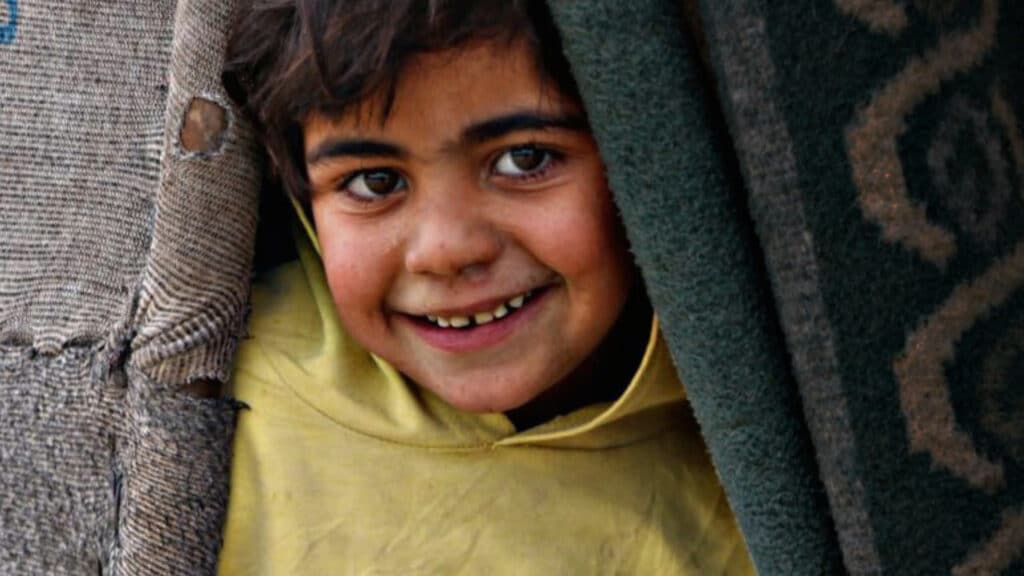On Wednesday 23rd April 2025, Action Syria CEO, Rose Essam, sat down with Trustees Mazen Gharibah and George Butler, to explore what life is like for Syrian communities today.
Through the stories and reflections shared, we heard about the challenges and also the hope — of people determined to rebuild a new, just, diverse and more tolerant nation.
Here are the key takeaways from the conversation.
For the past 14 years, Syria has witnessed extreme violence, with Syrians experiencing systematic detention, torture, and the use of barrel bombs and chemical weapons.
The last five years leading up to the fall of Assad have been described as “the worst in terms of economic hardship and deteriorating living conditions”. Mazen shared that many saw the final years as “a time when people were like living zombies, roaming the streets without any hope or glimpse of hope for the future”.
For some Syrians, hope for the future was dimming; they felt the Assad rule and sanctions would remain forever. For others, the belief that a better future is possible sustained them through the hard times.
Following the fall of Assad, the feelings described above “shifted dramatically”, but hardships remain for a country left with almost nothing.
The Central Bank reserves can barely cover three months’ salaries for public sector employees, much of the country’s money has disappeared, and electricity provision is patchy. Many Syrians have just one or two hours of power a day.
Although the situation remains turbulent and fragile, hope is returning too.
During the conversation, Mazen described how he hadn’t seen his father smile for a decade, but now he’s always smiling because he’s hopeful.
There are local initiatives emerging throughout Syria to make positive change. These groups are helping Syria step into a new era; organising rubbish collections and regulating traffic where there are no officials doing this.
For a long time, Syria has been fragmented, with people unable to visit each other. Now, we hear stories of people supporting and re-connecting with friends and family after years apart. This new freedom to travel also means “people are exploring their own Syria, their own country”.
People are returning to Syria — including families with school-aged children in hope that the country is ready for their next chapter. However, for many, returning to Syria isn’t yet an option, with no home to go back to, no work available, and continued uncertainty about the future.
George has been to Syria twice since Assad fell on 8th December 2024; both in the immediate aftermath and for two months at the beginning of 2025.
During his time there, he interviewed people, gaining a unique understanding of life in Syria before and after the fall of Assad.
He shared the stories of Manal, who gave birth in prison and couldn’t see her child for 11 years, they were eventually reunited in December 2024; and Hasnah, a young woman who has launched a network of 45 female journalists who write about women’s stories.
Reflecting on both visits, the things that stuck with him most were:
When George first arrived in Syria, he described a “jubilant atmosphere”. People were in the streets giving out roses and dates, saying it was the first time they’d seen their friends happy.
But alongside this new hope deep divisions remain. In March 2025, this manifested in massacres within the Alawite majority regions, killing more than 1,000 civilians.
As Mazen described, Syrians are coming to terms with “this brutal legacy”. Groups are forming to reflect on and address the atrocities of the past, give a voice to victims, and provide a space for people to meet.
It’s not easy, especially with sectarian rhetoric and disinformation still spreading online, contributing to the violence against minorities – specifically the Alawite community. Still, across the country, there are many people working to change this.
Many of the sanctions imposed on Syria were in opposition to the Assad regime. Now it has fallen, there is growing debate around their necessity.
Some believe these sanctions are important to ensure democratic governance but, as Mazen said: “democracy cannot be built in the dark, and Syria is literally dark during the night”.
Alongside political changes, Syria still urgently needs practical support. Local groups – including those supported by Action Syria – are working to meet immediate needs and help rebuild systems from the ground up. Community led solutions are essential to shaping Syria’s future.
At the time of writing, the UK government had just announced lifting some sanctions on Syrian entities. We hope this is a positive sign that the international community is responding to the need for investment to help rebuild Syria.
Generally, Syria makes headlines when something bad happens, but together we can change that. Here’s how:
Syria is now dealing with the aftermath of the Assad regime in what can only be described as a turbulent while hopeful time. Now is the time for us to act and support Syrian communities where needs are greatest. This is not the end of the crisis — it’s a new chapter, and right now, your support is still urgently needed.
If you missed the event – or attended – and would like to watch it back, click here to view the full recording.

Keeping supporters clued up on our work is important to us. Sign up to keep up to date with where the funds go and the impact they have, and how you can support us.